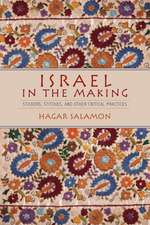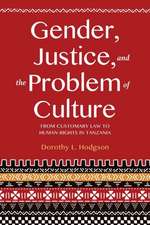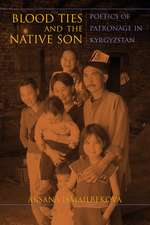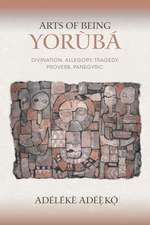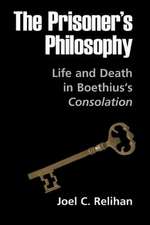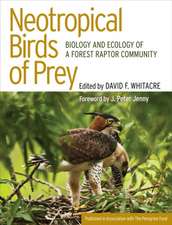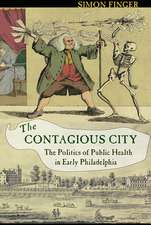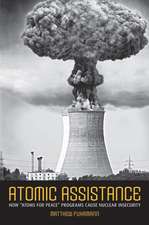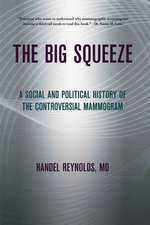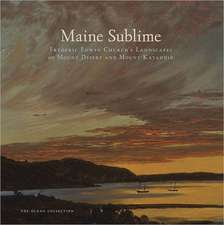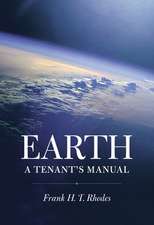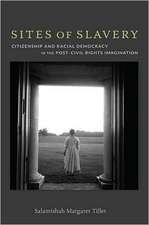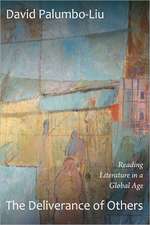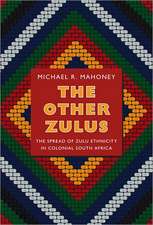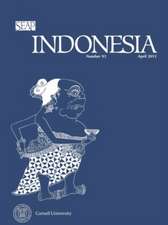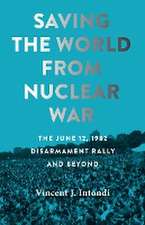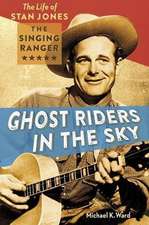African Americans Against the Bomb: Nuclear Weapons, Colonialism, and the Black Freedom Movement: Stanford Nuclear Age Series
Autor Vincent Intondien Limba Engleză Paperback – 6 ian 2015
Intondi shows that from early on, blacks in America saw the use of atomic bombs as a racial issue, asking why such enormous resources were being spent building nuclear arms instead of being used to improve impoverished communities. Black activists' fears that race played a role in the decision to deploy atomic bombs only increased when the U.S. threatened to use nuclear weapons in Korea in the 1950s and Vietnam a decade later. For black leftists in Popular Front groups, the nuclear issue was connected to colonialism: the U.S. obtained uranium from the Belgian controlled Congo and the French tested their nuclear weapons in the Sahara.
By expanding traditional research in the history of the nuclear disarmament movement to look at black liberals, clergy, artists, musicians, and civil rights leaders, Intondi reveals the links between the black freedom movement in America and issues of global peace. From Langston Hughes through Lorraine Hansberry to President Obama, African Americans Against the Bomb offers an eye-opening account of the continuous involvement of African Americans who recognized that the rise of nuclear weapons was a threat to the civil rights of all people.
| Toate formatele și edițiile | Preț | Express |
|---|---|---|
| Paperback (1) | 169.42 lei 3-5 săpt. | |
| Stanford University Press – 6 ian 2015 | 169.42 lei 3-5 săpt. | |
| Hardback (1) | 650.65 lei 6-8 săpt. | |
| Stanford University Press – 6 ian 2015 | 650.65 lei 6-8 săpt. |
Din seria Stanford Nuclear Age Series
-
 Preț: 120.87 lei
Preț: 120.87 lei -
 Preț: 156.08 lei
Preț: 156.08 lei -
 Preț: 318.73 lei
Preț: 318.73 lei -
 Preț: 225.96 lei
Preț: 225.96 lei -
 Preț: 200.61 lei
Preț: 200.61 lei -
 Preț: 270.31 lei
Preț: 270.31 lei -
 Preț: 235.41 lei
Preț: 235.41 lei -
 Preț: 418.85 lei
Preț: 418.85 lei -
 Preț: 265.32 lei
Preț: 265.32 lei -
 Preț: 196.89 lei
Preț: 196.89 lei -
 Preț: 147.27 lei
Preț: 147.27 lei -
 Preț: 217.26 lei
Preț: 217.26 lei -
 Preț: 286.66 lei
Preț: 286.66 lei - 23%
 Preț: 725.14 lei
Preț: 725.14 lei - 19%
 Preț: 478.46 lei
Preț: 478.46 lei - 19%
 Preț: 478.15 lei
Preț: 478.15 lei -
 Preț: 274.03 lei
Preț: 274.03 lei -
 Preț: 427.37 lei
Preț: 427.37 lei - 19%
 Preț: 559.25 lei
Preț: 559.25 lei -
 Preț: 235.34 lei
Preț: 235.34 lei - 19%
 Preț: 449.41 lei
Preț: 449.41 lei - 19%
 Preț: 481.10 lei
Preț: 481.10 lei - 19%
 Preț: 448.80 lei
Preț: 448.80 lei - 19%
 Preț: 544.73 lei
Preț: 544.73 lei
Preț: 169.42 lei
Nou
32.42€ • 33.94$ • 26.82£
Carte disponibilă
Livrare economică 15-29 martie
Specificații
ISBN-10: 0804792755
Pagini: 224
Dimensiuni: 152 x 229 x 13 mm
Greutate: 0.32 kg
Editura: Stanford University Press
Colecția Stanford University Press
Seria Stanford Nuclear Age Series
Recenzii
"The Civil Rights Movement did not exist in an historical vacuum. Dr. King spoke of the need to fight against 'racism, materialism, and militarism,' and Intondi's stirring narrative effectively shows how nuclear disarmament was part of the broader struggle. This is an important read for those who are interested in properly understanding the black freedom movement and U.S. foreign policy."—Benjamin Todd Jealous, former President and CEO of the NAACP
"As a young man I was moved by two issues, civil rights and the threat of nuclear war, and it took me many years to understand how those crises were inseparable. Vincent Intondi's original research will shake the complacent assumption that the civil rights and anti-nuclear movements could be segregated. Intondi shows that ever since the Bomb first was dropped on people of color in 1945, African-Americans have been in the forefront of the campaign to stop the deployment of nuclear weapons. He corrects a historical misunderstanding and contributes to an important new perspective on our history. A brilliant first book by a young historian seeing the world with new eyes."—Tom Hayden, Director of the Peace and Justice Resource Center
"Intondi's work provides a significant historiographical contribution to the history of antinuclear activism in the United States...Intondi's particular focus on African Americans illustrates the struggles they faced to have their message heard and to not be restricted in the types of activism they could engage in."—Javan D. Frazier, H-War
"This exclusive focus on anti-nuclear activism provides a much-needed addition to the small but growing scholarship on those who opposed nuclear weapons throughout the Cold War and beyond. Intondi's narrative is detail-oriented yet readable, and examines a vast array of Black voices discussing nuclear weapons within the broader contexts of civil rights, colonialism, and peace. He uses an impressive array of Black newspapers, as well as a large archival base, to cover the anti- nuclear sentiments of clergy, union leaders, civil rights organizers, pacifists, civic leaders, and more."—Kyle Harvey, Canadian Journal of History
Notă biografică
Cuprins
Discussing the focus, structure, and overall theme of the book, the Introduction explains the importance of the study, as well its relevance to African American and United States history. The introduction propose a number of questions: Did African Americans respond differently to the atomic bombings of Hiroshima and Nagasaki than did other Americans and, if so, to what extent was this related to the fact that the first victims were non-Caucasians? Did African Americans' discrimination-induced estrangement from American life allow for a more critical attitude toward the Cold War in general and U.S. nuclear policy in particular? Did the left-oriented social and political activism inspired by black Popular Front groups translate into a broader critique of U.S. militarism and foreign policy, both of which were undergirded by the American nuclear arsenal?
While the majority of Americans approved of President Truman's decision to use nuclear weapons at Hiroshima and Nagasaki, African Americans' initial response to the atomic bombings was quite different from that of the general public. Historians have compiled polls, surveys, and data to analyze the American reaction to the atomic bombings. Some data account for racial differences. However, no one has explored the response of the black church, press, entertainment industry, or ordinary black citizens. Chapter One traces the reactions of black activists, organizations, journalists, and others to the atomic bombings. Many black activists who appear throughout the book, including W.E.B. Du Bois, Paul Robeson, and Bayard Rustin, begin their antinuclear activism in this chapter. This chapter examines black leftists who worked for nuclear disarmament through a new communist-led peace movement, analyzing how they affected the black freedom movement and the political landscape of the late 1940s.
With the rise of McCarthyism, antinuclear became synonymous with pro-communism. However, black leftists refused to remain silent on the nuclear issue and they were not alone. Throughout the black community, citizens protested the use of nuclear weapons. They were not motivated by a directive from Moscow, but fear that nuclear weapons would again be used on a "darker nation," with the start of the Korean War. In an effort to prevent President Truman from using nuclear weapons in Korea, black activists circulated the "Ban the Bomb" pledge throughout the country, ran for political office on peace platforms, and worked with organized labor in a variety of ways. While the Red Scares of the 1950s stymied black activism, the connections between peace, colonialism, and freedom did not cease, and by the late 1950s had increased considerably.
Since 1945, black activists had consistently made that case that the bomb, colonialism, and civil rights were inextricably linked. During the years 1954-1960 the argument never seemed clearer. Nuclear testing around the world dramatically increased. The Civil Rights Movement emerged with the Brown v. Board of Education decision and murder of Emmett Till. At the same time, twenty-nine nations of Asia and Africa gathered in Bandung, Indonesia to address racism, colonialism, and the threat of nuclear weapons. Black leftists, civil rights activists, and ordinary citizens began making the connections. During 1957-1958 African Americans began working in new antinuclear groups like Committee for Non-Violent Action (CNVA) and Committee for a Sane Nuclear Policy (SANE). All of these issues came together when Bayard Rustin led a team, including Kwame Nkrumah and Bill Sutherland, in Africa to stop the French from testing a nuclear weapon, the Sahara Project.
Dr. Martin Luther King, Jr. began connecting nuclear disarmament to black freedom in the late 1950s. Chapter Four challenges scholars who suggest that King did not combine peace and freedom until 1967 when he spoke out against Vietnam. This chapter also focuses on those African Americans who again witnessed the U.S. declare war on a "darker nation," and threatened to use nuclear weapons in Vietnam, while at the same time denied African Americans equality at home. These activists included a number of black women who began to make their voices heard as members of WILPF and Women Strike for Peace (WSP). Throughout the 1950s-1960s, Coretta Scott King, Lorraine Hansberry, Erna Harris, and others traveled around the world attending disarmament conferences and even confronted the Pope to achieve nuclear disarmament.
Following the Vietnam War, many black activists saw a direct link between President Reagan's increased spending for nuclear weapons and the elimination of funds for social programs that mostly benefited the poor. As antinuclear activism reached new heights in the 1980s, black participation was also at an all-time high. Black politicians, athletes, activists, entertainers, and clergy consistently made the case that Reagan's nuclear ambitions negatively impacted their community. From the Continental Walk for Disarmament and Social Justice to the famous June 12, 1982 rally, these men and women not only participated in antinuclear events, but in some cases, took the lead in the movement to ban the bomb. Throughout these events, black activists made clear the black freedom movement, peace, and colonialism were indeed links in the same chain.
From Harold Washington to Ronald Dellums, black politicians have consistently lifted the antinuclear banner throughout U.S. history. As a student and presidential candidate Barack Obama spoke tirelessly about the need for nuclear abolition. How have his policies as President matched up? The book concludes by examining the current state of black activism and analyzing whether President Obama has strengthened or weakened the chance for a world with global human rights and free of nuclear weapons.

